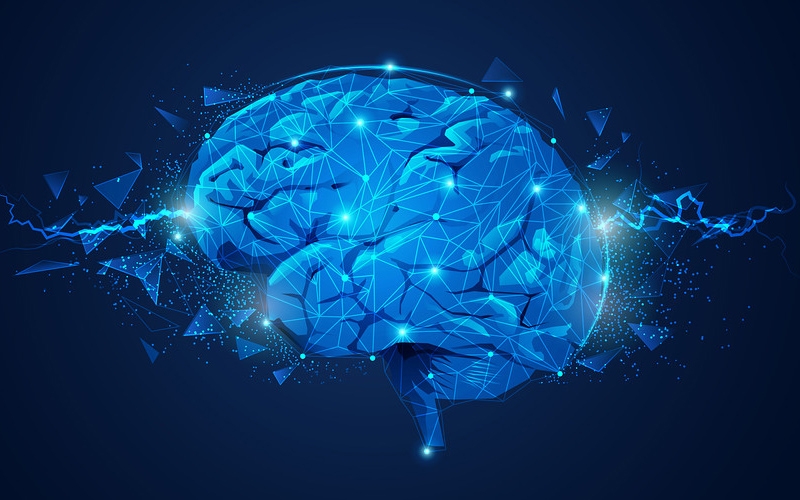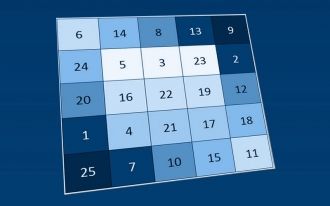- BRAINTRAIN |
- Blog |
- Thinking |
- How to Make Your Brain Work Efficiently

Bogdan Moroz 18.10.2019 1762 Comments
In our time, mind training isn’t the most popular activity, but interest in it grows yearly, driven by rapid technological advancements. Those who neglect their intellectual development quickly lose relevance in any field. It’s no secret that persistent effort can significantly enhance brain performance, which is valuable not only for acquiring professional skills but also rewarding, given the accessibility of diverse information and boundless opportunities for personal growth.
Objectively, the most rational way to positively impact brain activity is through specialist-designed brain trainers, which offer a comprehensive, multifaceted approach to intellectual development, rather than narrowly targeting one brain function. This approach is effective and time-efficient, with pre-prepared, well-organized exercises. However, using brain trainers doesn’t preclude enjoyable activities like typical logic puzzles and other beneficial exercises for intellectual growth, detailed in this article.
Physiological Aspects of Influencing Brain Activity
Scientists have long proven that psychological and physical aspects of our body are closely intertwined, so physical activity and habits significantly impact cognitive function, with both positive and negative effects.
Sleep and Work Routine
From childhood, parents instill a routine in their children, starting with simple tasks like meals, walks, and sleep, gradually incorporating more complex daily activities and, eventually, responsible work. This approach is highly effective, as adhering to a routine maximizes central nervous system activity and ensures high productivity. However, rest time must not be neglected. Ignoring rest leads to psychosomatic disorders and health issues, rendering productivity impossible.
Proper and Full Sleep
Beyond scheduling rest, creating conditions for complete relaxation and bodily recovery is crucial. Scientists studying biochemical processes in the central nervous system during sleep reached this conclusion. A key process during rest is the removal of beta-amyloids, byproducts of brain activity, which, if sleep is disrupted, can accumulate in small blood vessels, impairing metabolic processes and contributing to Alzheimer’s disease. Experts observe that adults need 7 to 9 hours of healthy sleep to complete all necessary processes.
Physical Activity
Exercise stimulates not only muscle and cardiovascular function but also the nervous system. When done on a regular schedule, it significantly boosts cognitive performance. Outdoor activities also oxygenate the blood, essential for nourishing neural tissues and removing metabolic byproducts.
Special Exercises for Brain Training
With the above health factors for neural tissues addressed, the final step is to train the brain. Proven, scientifically documented methods exist for this purpose.
Rational Information Repetition
This method is particularly effective for absorbing large amounts of information and boosting intelligence, ensuring it remains in memory long-term. Unlike rote memorization, where 96% of learned material is forgotten post-exam, exercises with planned repetitions “engrave” information in the brain, recallable years later.
The method moderates the forgetting curve through systematic repetitions. The principle is simple: the more frequently we revisit information, the more important the brain deems it, memorizing it better and retaining it longer.
Create a repetition schedule with varying intervals: daily, every 3 days, weekly, monthly. Information well-memorized with daily repetition moves to a list with longer intervals, progressing to the longest. You’ll notice how well it sticks when it reaches the second or third list. This is ideal for expanding vocabulary or learning a new language.
Continuous Skill Acquisition
Neurology research shows that learning new skills stimulates brain activity and enhances metabolic processes. This not only broadens capabilities but reduces Alzheimer’s risk. While repeating existing information is important, neglecting new knowledge or puzzles is detrimental. For effectiveness, doctors advise quitting smoking and alcohol, which affect small blood vessels, including in the brain, hindering metabolic processes.
Keeping Notes
Notes are not just for storing information but an effective way to activate additional brain cortex areas. Even if never reread, note-taking significantly boosts memorization and comprehension compared to passive listening. Some practice drawing while learning, equally effective in engaging additional brain zones and stimulating overall activity. Listening to emotional music during writing or calculations similarly activates multiple cortex areas responsible for different functions.
Eliminating Multitasking
Focusing on one process is always more effective than scattered attention, allowing greater attention to a specific task and preventing errors. It also avoids unnecessary nervous system strain. In today’s world, social media and aimless internet surfing negatively impact concentration, “training” distractibility and complicating focus. The best solution is to abandon social media entirely or, if unavoidable, strictly limit and direct their use.
Dedicating Time to Focused Attention Training
The exercise is simple, but consistently allocating time is challenging. It involves finding a quiet place and spending at least 15 minutes daily calming down, relaxing, and focusing on your perceptions, feelings, and sensations. Try to sense your heartbeat, breathing, and temperature sensations. This helps eliminate distractions and concentrate on one specific thing. This skill, as vital as intellectual games or logic puzzles, aids in solving complex tasks and benefits nervous system health.
Influencing the Body Through Psychosomatics
Protective bodily reactions are not fully understood, but their potential is vast. Experiments established that the central nervous system can activate defenses without physical stimuli. For instance, viewing images of sick people triggered protective immunoglobulin production in test subjects, despite no real infection risk. Thus, all information we consume, even images, affects both psychological and physical health.




